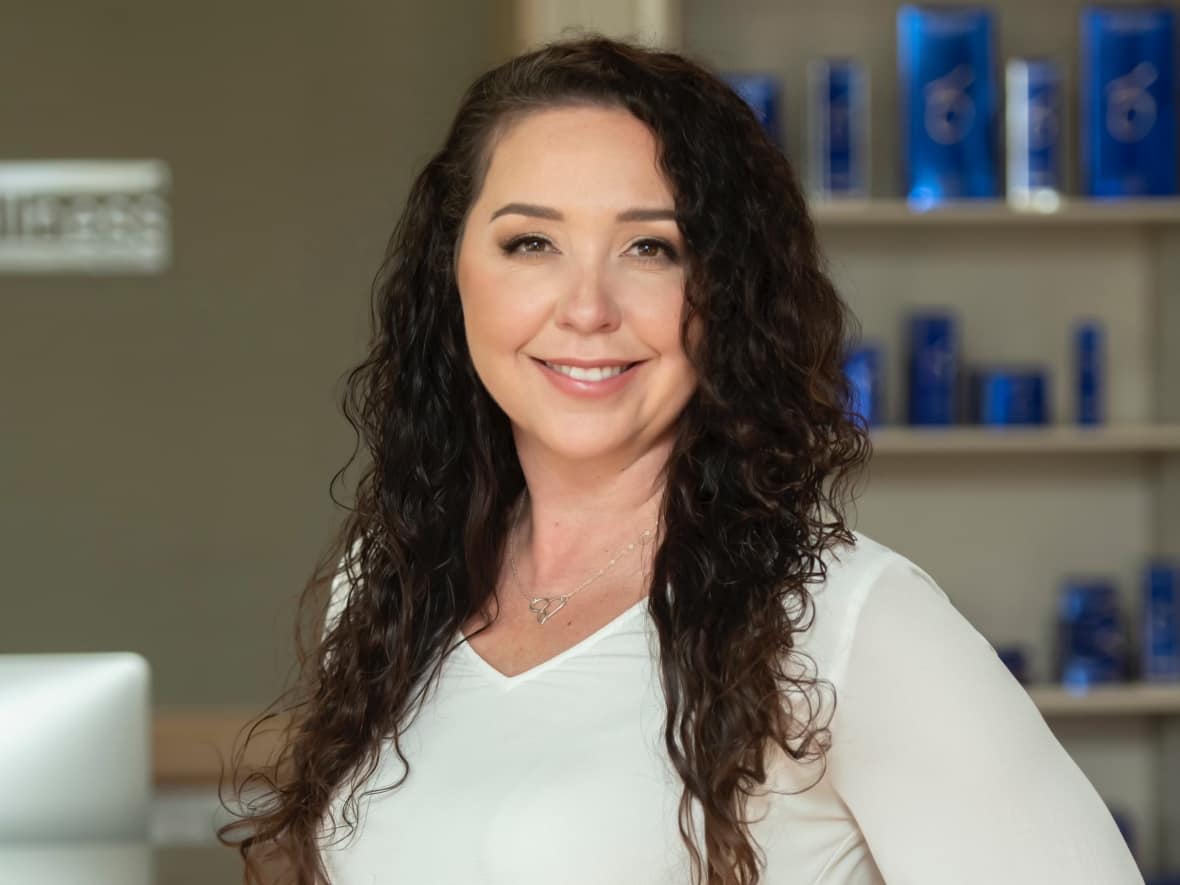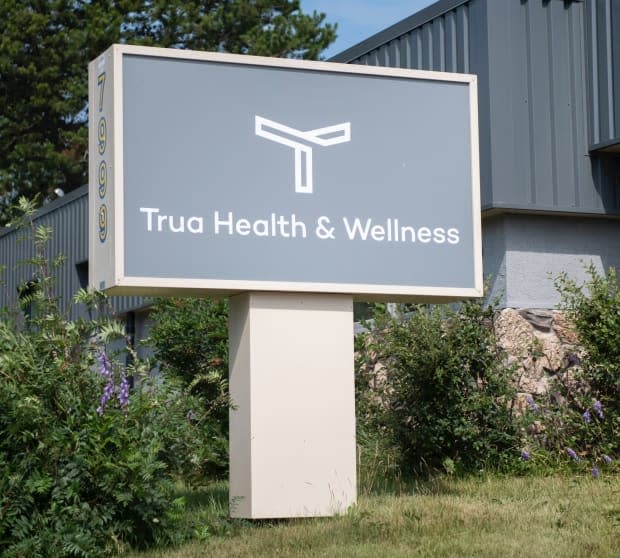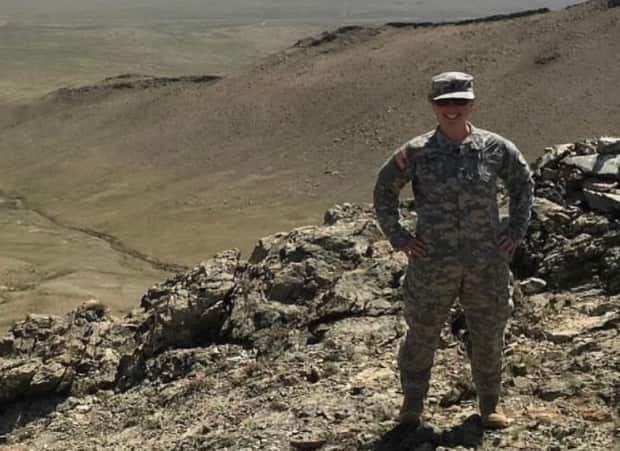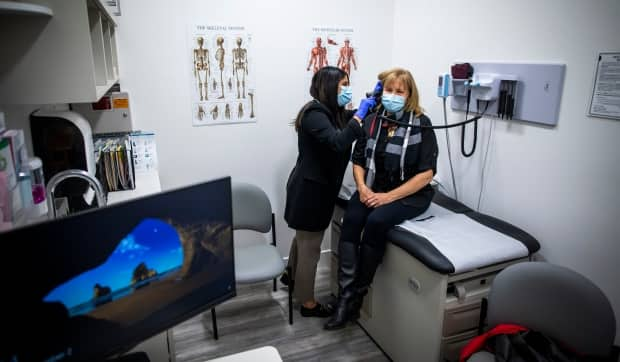U.S.-trained nurse practitioner from N.L. wants province to cut licensing red tape


In 2018, nurse practitioner Julie Kane bought her great-grandmother's house in Elliston, on Newfoundland's Bonavista Peninsula, with dreams to move home from Alaska with her husband, who is also a nurse, and work in the region.
But Kane says the process to get licensed to work as a nurse practitioner has been making it difficult to turn her dream into reality.
"It's just been, what I would consider, barrier after barrier," Kane said from the office of Trua Health and Wellness, a health clinic she owns in Anchorage.
There is a shortage of health-care workers in the province, which has forced the closure of some rural emergency rooms this summer and created lengthy wait times for patients in the ER.
The province's medical association estimates about 125,000 people in the province don't have access to a family doctor.
Meanwhile, Kane — who was born in Newfoundland and studied to become a registered nurse in the province — would like to see the process to get licensed as a nurse practitioner modernized and streamlined to cut down on red tape.

Kane moved to the United States in 1998 because there were few full-time nursing jobs in the province at that time. She said she came back to the province to work as a registered nurse for a stint in the early 2000s before returning to the U.S. again.
Kane said she became a nurse practitioner in 2017 after graduating from an online masters of nursing program at Illinois-based Chamberlain University and passing a board exam to get licensed in the United States.
"Since then I've been working full time as a nurse practitioner. I also worked part time in the Alaska National Guard," she said.
In order to work as a nurse practitioner in Newfoundland and Labrador, Kane said she first had to get licensed as a registered nurse — a process she said took six months to a year.
Kane's RN licence was approved last month and now she has to go through a second process to get licensed as a nurse practitioner, but she said she doesn't know how long it will take.

Because Kane studied to become a nurse practitioner outside of Canada, the College of Registered Nurses of Newfoundland and Labrador says it has to assess her education to ensure it meets Canadian standards before they can authorize her to write the Canadian Nurse Practitioner Exam. The exam is required for licensing and is held twice a year, in May and October.
Kane also said she's been told it would be easier to first get licensed as a nurse practitioner in another province, like Ontario or British Columbia. Kane said she has decided to do just that and will try and get licensed in Ontario and transfer the credentials to Newfoundland and Labrador, because she said Ontario's regulator will accept her American licensing exam.
Still, she said that process could involve English language proficiency tests and thousands in registration and application fees.
"I don't feel like I should need to go through other provinces to get a job in Newfoundland," she said.
Meanwhile, Kane said it was easy to transfer her nursing credentials to the U.S. in the 90s and believes the process could be simplified because she says education programs in both countries are similar.
"I shouldn't have to fill out paper forms anymore," she said, who also believes it would also be beneficial to have someone to help guide applicants through the complicated process.
"I thought it would be easier for me to move back home."
Few internationally-trained nurses in N.L.
Lynn Power, the executive director of the College of Registered Nurses of Newfoundland Labrador says the college is trying to cut through the red tape for people trying to get a nursing licence in Atlantic Canada.
"We only started nurse practitioner practice in Newfoundland and Labrador in 1998-99 and in other countries it's at different developing stages, different approaches, different elements and scope, even different terminology," said Power.
"So it is not as easy to do the comparison," she said, adding that the college must ensure nurses meet basic competencies to protect patient safety.
Power said a nursing professor from Memorial University or another expert could verify the curriculum from a nurse practitioner program outside the country to determine if it matches Canadian standards. But Power said they aren't currently assessing any applicants.
Meanwhile, Kane said it's not clear exactly how much such an assessment would cost, but it could be in the range of $650 according to emails Kane provided to CBC News.

"We've had very few applications from nurse practitioners that were trained elsewhere," Power said, adding that fewer than two per cent of registered nurses in the province are internationally-trained.
Still, Power says nurse practitioners are a small but growing field with about 8,000 licensed in Canada, compared to 400,000 registered nurses licensed in the country.
"I am excited to say that we are working on a new process with Atlantic Canada… to look at developing an Atlantic Canada solution that we would have [a] template that we could look at and therefore that would standardize it," Power said.
Premier Andrew Furey said the provincial government is also looking to reduce red tape for health workers.
"We're certainly looking at how to get rid of the red tape in the practice of medicine, nursing and allied health professionals," he said.


